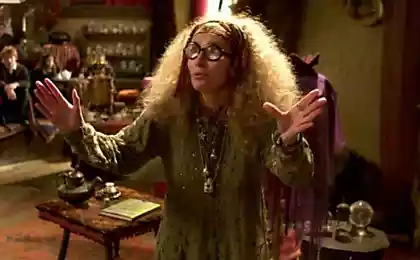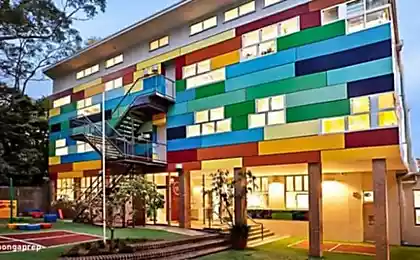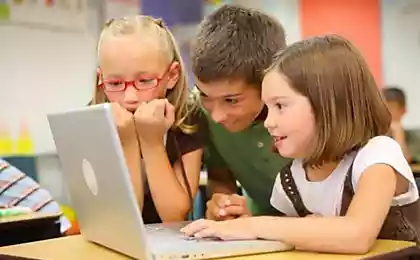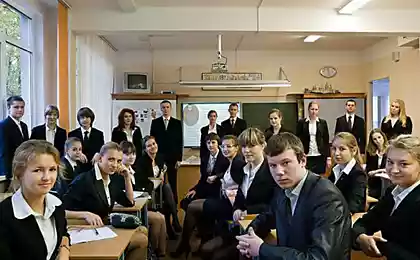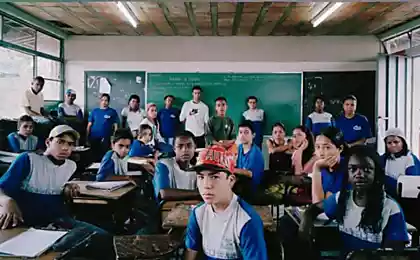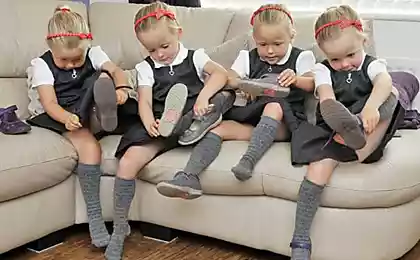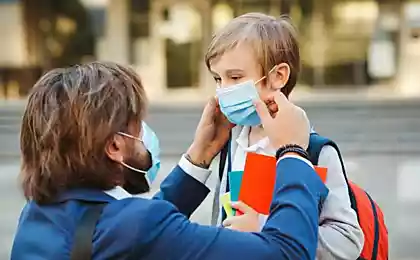204
Why it is impossible to combine remote work and distance learning
The beginning of the new school year 2020-2021 causes some concerns among many parents. Will children return to school on September 1? Or will quarantine education once again show students and their working parents all its charms?
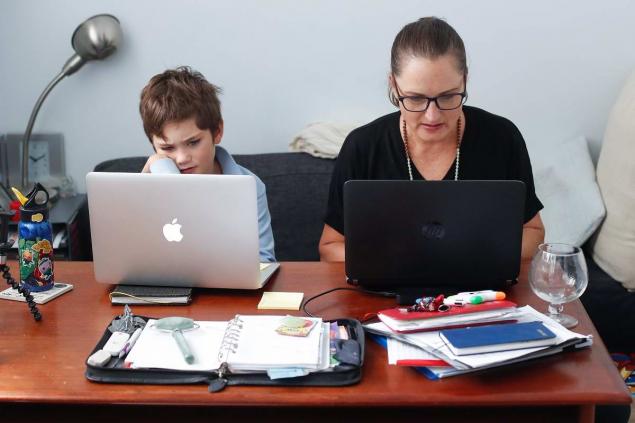
The academic year will begin “according to plan”, said the head of the Ministry of Education of the Russian Federation Sergey Kravtsov. The chief sanitary doctor of Russia Anna Popova added that a number of restrictions will still remain.
Meanwhile, the WHO warns that the world is on the verge of a new phase of the pandemic and quarantine could return to Russia if people do not follow the rules of behavior.

Anyway, we decided to talk to readers about the problems of distance learning and share the thoughts of parents who had to learn to combine it with remote work.
The format of remote learning, which was practiced in schools during the period of strict quarantine, did not suit all children and their parents. To maintain a favorable atmosphere in the family in such conditions was not easy.
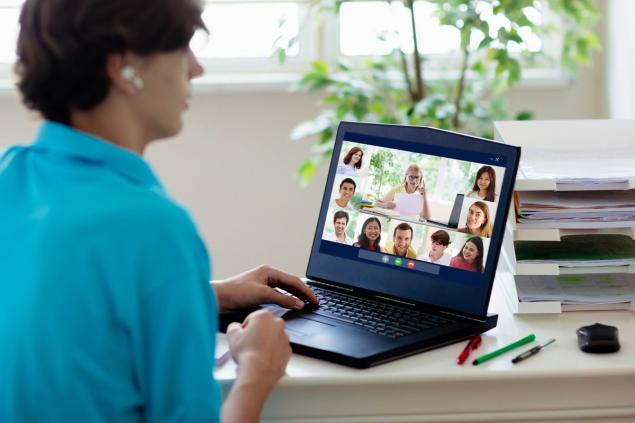
“It is a mockery of both children and parents. The quality of this form of education is at zero, if only because parents are not teachers. But it was the parents who had to teach the children for 3 months, as they could, as they could, complains the mother of one of the students.
Many parents had to practically replace their teachers: “Children were simply sent sheets of assignments, they were somehow monitored. Not all teachers were able to explain a new topic through Zoom. It was a total mess. And when it finally ended, my wife and I breathed a sigh of relief.”
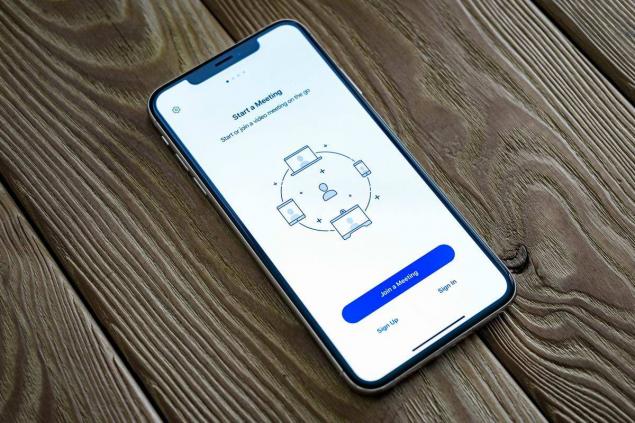
The problem was a large number of different platforms used in training. The main horror is that tasks are given simultaneously on three different platforms: “Uchi.ru”, “Yandex.Textbook”, “Electronic Journal”. And EGD. And some Google class. It is absolutely impossible to keep all this in consciousness at the same time. Children are naturally disoriented.”
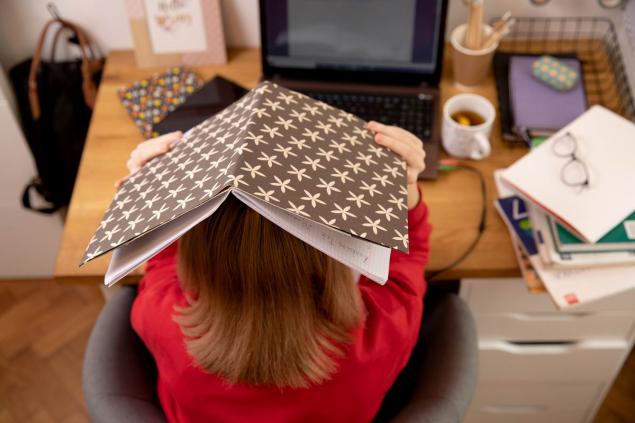
In addition, ophthalmologists say that children of primary school age should not be constantly at the screens, the norm is no longer than 15-30 minutes. Constant use of gadgets can cause them vision problems, cause myopia.
In quarantine, children move less, communicate less with peers and spend more time indoors in front of screens. So if we talk about distance learning as an issue related to the health of children, then everything is not so clear.
“Do I have to choose my livelihood and pay bills and mortgages, or should I choose to have my child go to sixth grade this year?” asks Deb Perelman, a New York-based author of The Smitten Kitchen Cookbook.
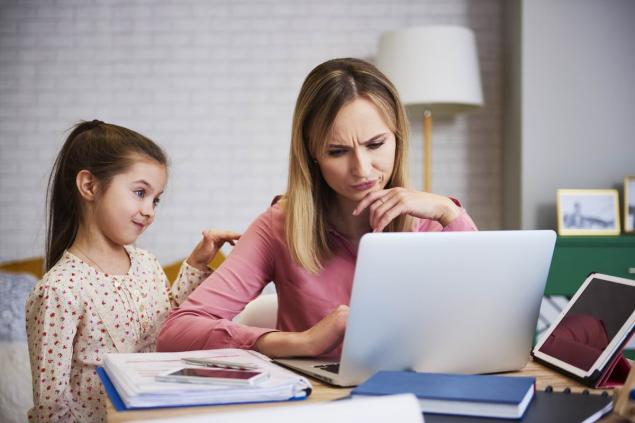
Under new federal rules, Deb's children will only be able to attend school once every three weeks in the new school year. And there is no money for a nanny for a family with a father who lost his job. "Let me say the quiet part out loud: in the Covid-19 economy, you're only allowed a child or a job," Perelman said.
In addition to caring for children, working mothers also experience additional stress caused by an increased risk of being fired. In a recently filed lawsuit, San Diego resident Drisana Rios claims her former employer fired her because the children indulged while she was at work.
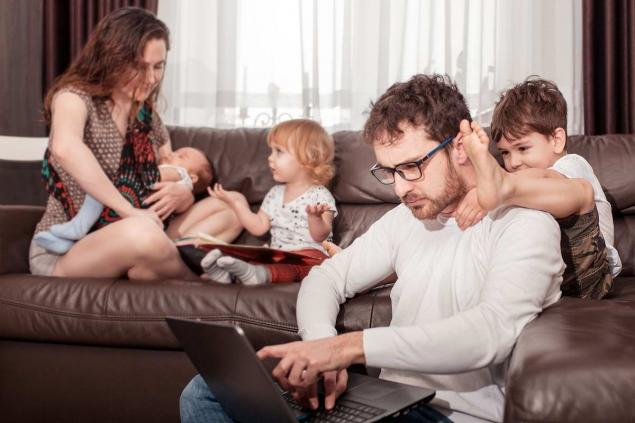
According to the Rios boss, children "can be heard on business calls with customers," it is "unprofessional." Soon after, the woman was fired, and the company pointed to the negative impact of the pandemic on her income.
There are various rumors in schools about the upcoming school year. According to one report, teachers were told to prepare for remote learning. On the other hand, the classes will be divided into two shifts, so that instead of 36 students in the class, 18 students are engaged in the first shift, and another 18 in the second.
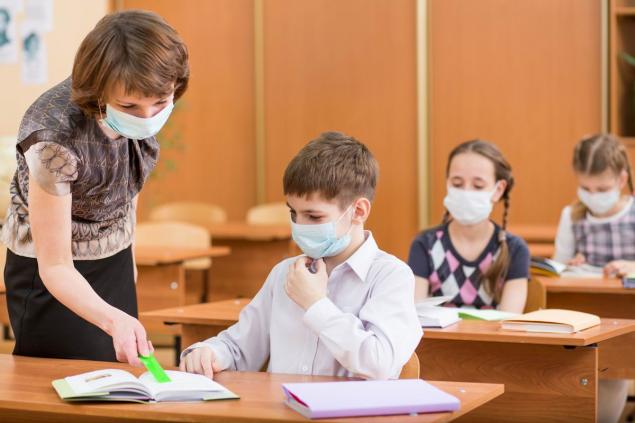
But where do we get so many teachers? The first is that the second option calls into question the ability of parents to fully attend work. Therefore, it is worth thinking now.
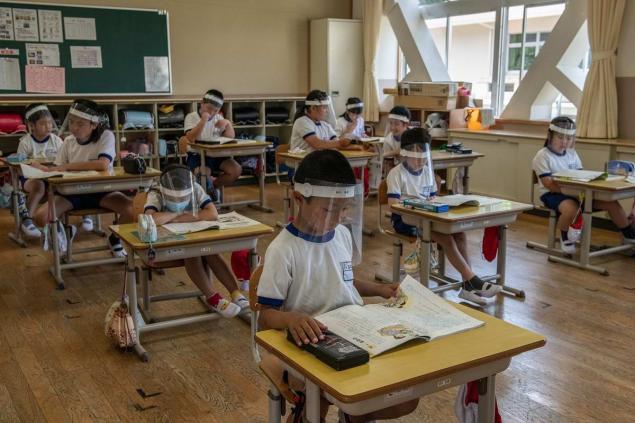
GettyImages adds to the heat of journalists who looked at the new educational conditions introduced in Chinese schools after the easing of quarantine.
Estudiantes vuelven a clases en Wuhan, lugar donde comenzó el coronavirus. Foto @CNNChile pic.twitter.com/sm6kSqybtY
— Oswaldo Marchena M. (@marchenojob) May 6, 2020
What they saw was a little scary. So, the premises are disinfected four times a day, and the students themselves enter the classroom one by one, keeping a distance of one meter.
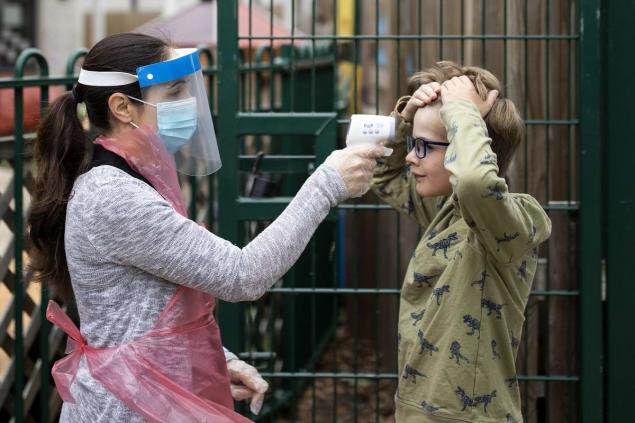
GettyImages Before they let the children into the office, they take their temperature and give them a hand sanitizer. All students sit one at a time at a separate desk. And some schools even have transparent plastic shields that allegedly prevent the spread of the coronavirus. Such measures may well await schoolchildren in other countries, including Russia.
Optimists call online services the future of education. They say that distance learning gives more freedom, saves time and money. But not all intellectuals share this view.
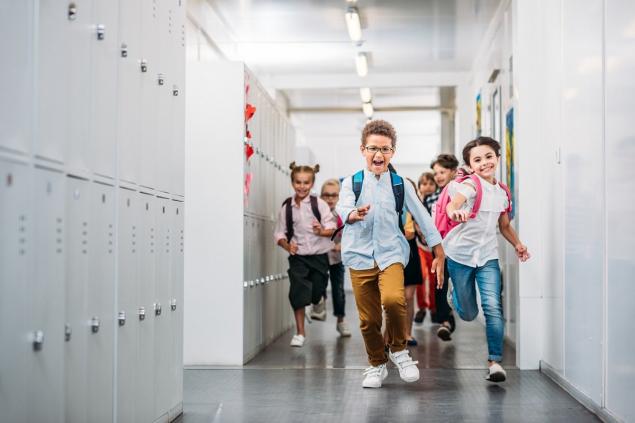
“Under laudatory odes to distance education, the world is moving towards the fact that the children of rich parents will have a quality traditional education, and everyone else will have a standardized virtual surrogate. Distance learning is the collapse of education.” This opinion was expressed by Professor of Italian literature of the University of Calabria Nuccio Ordine in a video message posted on the website of the Spanish edition of El Pais.
“Amid so many uncertainties, one thing I am sure of is that contact with students in the classroom is the only thing that gives true meaning to education, and even to the teacher’s life itself. I've been teaching for 30 years, but I can't imagine having classes, exams or test sessions through a cold screen, Ordine adds.
The famous Russian teacher Shalva Amonashvili agrees with him: “Self-isolation puzzled us.” No matter what comfortable house we live in, it is difficult to be locked up even in the choirs. We are used to meeting people, shaking hands, hugging, looking into the eyes, talking. Without it, life is unthinkable. And if after all this we have to bypass each other in order not to catch something, it will be some kind of dog life.
As they say, wait and see. The social and cognitive implications of online education have not yet been studied. This has never happened before in the world, and we cannot, as usual, rely on the experience of our ancestors. Life is a challenge and we have to face it.

The academic year will begin “according to plan”, said the head of the Ministry of Education of the Russian Federation Sergey Kravtsov. The chief sanitary doctor of Russia Anna Popova added that a number of restrictions will still remain.
Meanwhile, the WHO warns that the world is on the verge of a new phase of the pandemic and quarantine could return to Russia if people do not follow the rules of behavior.

Anyway, we decided to talk to readers about the problems of distance learning and share the thoughts of parents who had to learn to combine it with remote work.
The format of remote learning, which was practiced in schools during the period of strict quarantine, did not suit all children and their parents. To maintain a favorable atmosphere in the family in such conditions was not easy.

“It is a mockery of both children and parents. The quality of this form of education is at zero, if only because parents are not teachers. But it was the parents who had to teach the children for 3 months, as they could, as they could, complains the mother of one of the students.
Many parents had to practically replace their teachers: “Children were simply sent sheets of assignments, they were somehow monitored. Not all teachers were able to explain a new topic through Zoom. It was a total mess. And when it finally ended, my wife and I breathed a sigh of relief.”

The problem was a large number of different platforms used in training. The main horror is that tasks are given simultaneously on three different platforms: “Uchi.ru”, “Yandex.Textbook”, “Electronic Journal”. And EGD. And some Google class. It is absolutely impossible to keep all this in consciousness at the same time. Children are naturally disoriented.”

In addition, ophthalmologists say that children of primary school age should not be constantly at the screens, the norm is no longer than 15-30 minutes. Constant use of gadgets can cause them vision problems, cause myopia.
In quarantine, children move less, communicate less with peers and spend more time indoors in front of screens. So if we talk about distance learning as an issue related to the health of children, then everything is not so clear.
“Do I have to choose my livelihood and pay bills and mortgages, or should I choose to have my child go to sixth grade this year?” asks Deb Perelman, a New York-based author of The Smitten Kitchen Cookbook.

Under new federal rules, Deb's children will only be able to attend school once every three weeks in the new school year. And there is no money for a nanny for a family with a father who lost his job. "Let me say the quiet part out loud: in the Covid-19 economy, you're only allowed a child or a job," Perelman said.
In addition to caring for children, working mothers also experience additional stress caused by an increased risk of being fired. In a recently filed lawsuit, San Diego resident Drisana Rios claims her former employer fired her because the children indulged while she was at work.

According to the Rios boss, children "can be heard on business calls with customers," it is "unprofessional." Soon after, the woman was fired, and the company pointed to the negative impact of the pandemic on her income.
There are various rumors in schools about the upcoming school year. According to one report, teachers were told to prepare for remote learning. On the other hand, the classes will be divided into two shifts, so that instead of 36 students in the class, 18 students are engaged in the first shift, and another 18 in the second.

But where do we get so many teachers? The first is that the second option calls into question the ability of parents to fully attend work. Therefore, it is worth thinking now.

GettyImages adds to the heat of journalists who looked at the new educational conditions introduced in Chinese schools after the easing of quarantine.
Estudiantes vuelven a clases en Wuhan, lugar donde comenzó el coronavirus. Foto @CNNChile pic.twitter.com/sm6kSqybtY
— Oswaldo Marchena M. (@marchenojob) May 6, 2020
What they saw was a little scary. So, the premises are disinfected four times a day, and the students themselves enter the classroom one by one, keeping a distance of one meter.

GettyImages Before they let the children into the office, they take their temperature and give them a hand sanitizer. All students sit one at a time at a separate desk. And some schools even have transparent plastic shields that allegedly prevent the spread of the coronavirus. Such measures may well await schoolchildren in other countries, including Russia.
Optimists call online services the future of education. They say that distance learning gives more freedom, saves time and money. But not all intellectuals share this view.

“Under laudatory odes to distance education, the world is moving towards the fact that the children of rich parents will have a quality traditional education, and everyone else will have a standardized virtual surrogate. Distance learning is the collapse of education.” This opinion was expressed by Professor of Italian literature of the University of Calabria Nuccio Ordine in a video message posted on the website of the Spanish edition of El Pais.
“Amid so many uncertainties, one thing I am sure of is that contact with students in the classroom is the only thing that gives true meaning to education, and even to the teacher’s life itself. I've been teaching for 30 years, but I can't imagine having classes, exams or test sessions through a cold screen, Ordine adds.
The famous Russian teacher Shalva Amonashvili agrees with him: “Self-isolation puzzled us.” No matter what comfortable house we live in, it is difficult to be locked up even in the choirs. We are used to meeting people, shaking hands, hugging, looking into the eyes, talking. Without it, life is unthinkable. And if after all this we have to bypass each other in order not to catch something, it will be some kind of dog life.
As they say, wait and see. The social and cognitive implications of online education have not yet been studied. This has never happened before in the world, and we cannot, as usual, rely on the experience of our ancestors. Life is a challenge and we have to face it.
Dinner in Italian style for a spouse with a good appetite
Wide selection of gambling, generous preferences, individual approach


